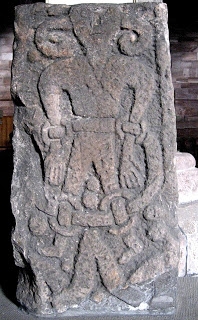Преамбула
Данная небольшая статья, несомненно содержащая больше вопросов, чем ответов, отражает три проблемы (или вернее – дискуссии), которые существуют в современном язычестве.
Первая касается реконструкторской аутентичности, в частности вопросу вокруг правомерности справления блота, ритуалов и культа бога Локи. Ведь известно, что такой культ в древности отсутствовал, его следов не обнаружено. На наш взгляд, мы живем в эпоху Конца Времен, в которую боги разрушения и сметри выходят на первый план, что легитимизирует возможность таких культов и обрядов. Вопрос здесь лежит скорее в формах, чтобы они отталкивались от реального древнего наследия насколько это возможно, не допуская поверхностного синкретизма и фантазерства.
Вторая касается известной мягкой дихотомии между Путем Правой Руки и Путем Левой Руки. Вопрос так же пролегает через первый пункт, но корнями уходит в философию и мировоззрения адептов первого и второго (Правого и Левого). Не вдаваясь в подробные рассуждения о природе этих Путей, сделаем лишь замечание что крайности в любом случае являются только препятствиями, которые никуда не ведут.
Третья дискуссия раскрывается в конце статьи и, в некоторой форме, являеся одной из причин написания данной статьи автором Стефаном Гранди. Суть проблемы в том, что некоторые западные (и наши отечественные) язычники, славя родных богов и формально, внешне, соблюдая традицию, внутри сохраняют христианские моральные (в худшем случае – гуманистские светские) установки. Т.е. под шкурой язычестве кроется овца христианства, что выражается в ярой оппозиции “светлых” и “темных” богов, придания “темным” богам сатанинских черт и т.п., что, конечно же, в высшей мере нелепо.
Сам текст является ответом на статьи против Локи, и отражают видение автора о сущности Пути Левой Руки в германском язычестве. На данный момент более подробные тексты на эти темы pro et contra доступны на английском языке и ждут своих энтузиастов переводчиков.
А пока мы представялем на суд читателя эту небольшую статью.
Askr Svarte
A New Perspective on Loki as a Left-Hand Path Germanic God

Loki, is He a God or a giant? The scholars argue that the Eddas appear to be ambiguous about this. My argument is that His status is no less ambiguous than many of the other major Germanic deities. We know that his father was Farbauti[ON `dangerous hitter`], a giant. The etymology of Farbauti`s name is associated with lightening or the storm[See Rudolf Simek`s Dictionary of Northern Mythology]. His mother was Laufey[ON `leaf island`-a rather incredulous interpretation]. Her alternative or additional name was Nal[ON `needle`] because she was so slender and nimble. Simek suggests that Laufey may have been a tree Goddess. She is generally considered to be a Goddess and listed as such in the Eddas and we have no reason therefore to doubt that She was one.
The Eddas are replete with stories of matings between Gods or Goddesses with giants and the giants should be considered as an earlier race of Gods which the Aesir and Vanir displaced. Wodan Himself was of giant parentage via His mother Bestla, a frost giantess. Thus we may conclude that Loki had as much Aesir blood flowing through His veins as Wodan, the chief of the Gods Himself. However Loki`s attitude towards the Gods is ambivalent. Early on in the mythology He is portrayed as a positive member of the Aesir, often coming to their aid in times of crisis. It is only with the beginning of Ragnarok and the events that precede it that we see a markedly different side to Loki. Causing the death of Baldur and preventing His early release from Hel and His slandering of the Gods in theLokasenna He hastens on Ragnarok and shows Himself as an apparent enemy of the Gods. That is how people superficially see Loki`s role. However like life He is more complex than that and in my opinion He should be viewed as being the Shadow of Wodan.
Loki and Wodan are blood brothers and often journeyed together in Midgard. There is some suspicion that He is in fact the God Lodur who along with Wodan and Hoenir gave life to man. Both Wodan and Loki are half giant in extraction but Loki as Wodan`s Shadow has his giant inheritance from His mother`s and not His father`s side. Usually it was the Gods who mated with giantesses and not the other way around. My inkling is that Laufey may have been raped by Farbauti and hence the apparent shame and lack of identification with the father. This may account for why some are tempted to see him more in the light of being a giant than a God. Curiously He is named after His mother, not His father for in the Eddas He is referred to as Loki Laufeyjarson. Perhaps He was anxious to bury his giant heritage, maybe even ashamed of it for the reason stated above?
Scholars point out that there is no evidence for any cults of Loki in the pre-christian past. However this betrays their lack of understanding of His role. If Loki is Wodan`s Shadow then it is unlikely that we would expect to see any such evidence for the common people were highly unlikely to worship such an apparently negative deity. Additionally as Wodan`s Shadow He in effect IS Wodan, His darker and seemingly more destructive side. However it is the Loki side of Wodan`s personality which grants the All Father such naked intelligence, cunning and at times seeming duplicity. Loki is a catalyst, an agent of change and transformation. Whilst He is responsible for hastening on Ragnarok He was not responsible for the loss of the Golden Age. In His seeming `evil` deeds He is in fact providing a solution to the Wolf Age in which we find ourselves in. Through His actions the new Golden Age will arise after Ragnarok.
He is the ultimate problem solver but His motives are not always clear. Loki represents the ultimateLeft-Hand Path Germanic God. He stands alone. He is independent. He cares not for worship, adulation or approval. There is no consensus over the etymology of Loki`s name and this does not surprise me for there is no consensus at all about Loki who is the ultimate enigmatic God. My interpretation of His name is one that suggests `light`. I am reminded of Lucifer[an Aryan not a Semitic name] who shares a similar personality and name. It is likely that Loki derives from the PIE word *leuk. George William Cox in his The Mythology of the Aryan Nations volume II states:
“The name Loki, like that of the Latin Vulcanus, denotes the light or blaze of fire, and in such phrases as Locke dricker vand, Loki drinks water, described the phenomena of the sun drinking when its light streams in shafts from the cloud rifts to the earth or the waters beneath. The word thus carries us to the old verb liuhan, the Latin lucere, to shine, and to Logi as its earlier form, the modern German lohe, glow; but as the Greek tradition referred the name Oidipous……., to know and to swell, so a supposed connexion with the verb lukan, to shut or lock, substituted the name Loki for Logi, and modified his character accordingly.”
The Eddas know of an Utgard-Loki and a Logi, a fire giant. Wagner in his Das Rheingold conflates the two characters of Loki and Logi together in the form of Loge and it would appear that there may be good grounds for doing so. It is interesting to note that the Old Norse equivalent of Saturday is Laugardagr, the Swedish logerdag and the Danish loverdag. Clearly originally before the pernicious influence of christianity Loki had a much more revered role in the Germanic pantheon but like many of the Gods He was demonised and this demonisation continues amongst many modern day `Asatru`. We need to view Him as the Germanic Prometheus who has brought the light of intelligence to man rather than the christian imposed idea of being a `devil`.











